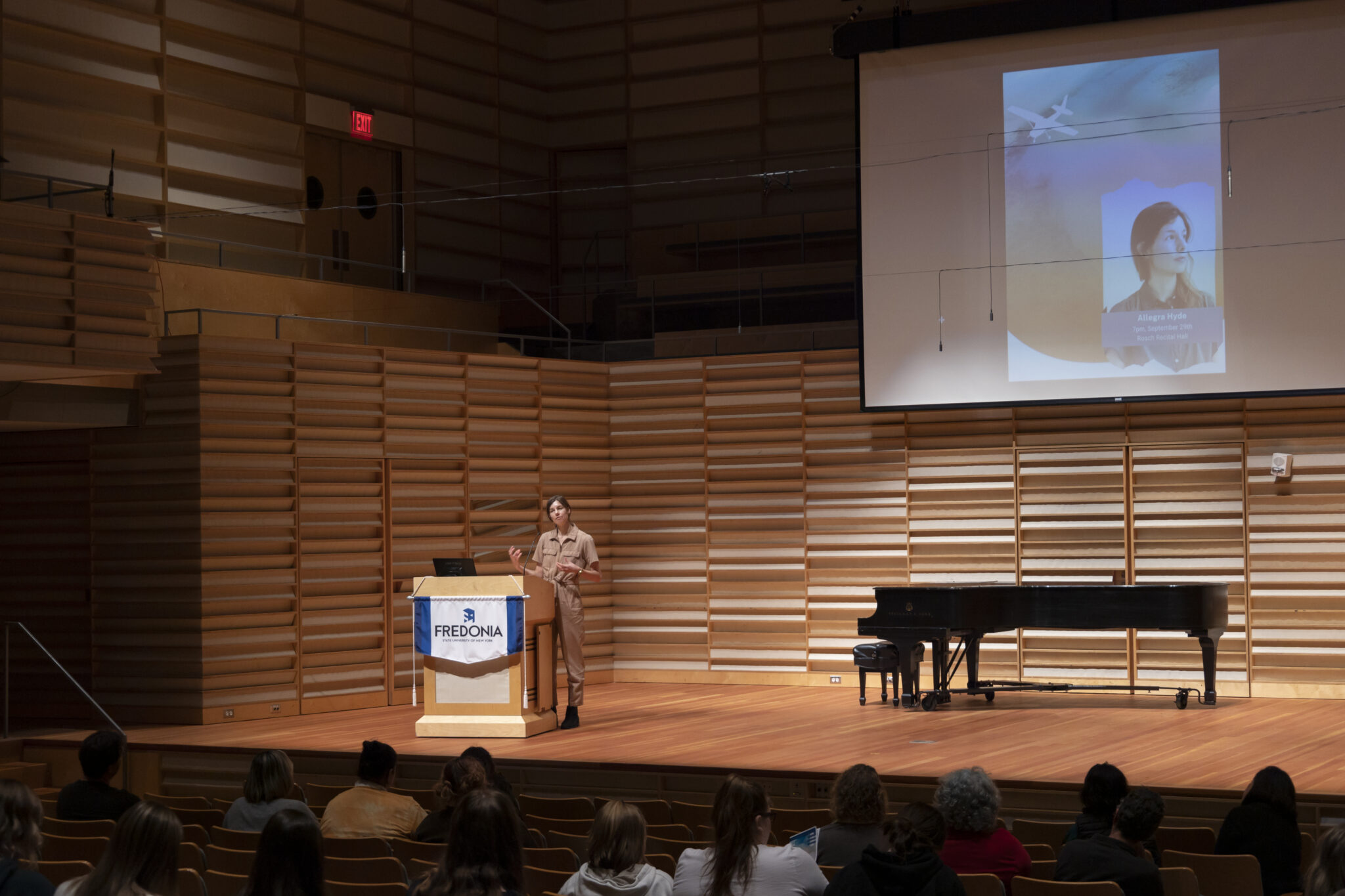WILL KARR
Staff Writer

From non-fiction and journalism, to creative writing and fiction, many writers feel like they have to pigeonhole themselves into one area of focus. However, the new writing major at SUNY Fredonia is showing students that they don’t have to limit themselves to only one form of writing.
“The goal for the writing major is focused on connection,” said associate English professor Michael Sheehan.“… Trying to think about how creative writing benefits from professional writing skills, and how professional writing benefits from creative writing practices.”
This year, the department of English introduced a new bachelor’s degree in writing, which incorporates creative writing, professional writing and other forms of writing into one comprehensive program. Fredonia already offers two distinct writing minors: creative writing and professional writing. The new writing major combines aspects of both of the minors with Fredonia’s bachelor’s in English degree. Sheehan said that one of the primary goals of the program is to help students to become more well rounded writers.
“The aim of the major is to create a marketable creative,” Sheehan said. “For example, people who have creative skills aren’t always taught or made aware of how marketable their skills are. A poet or fiction writer might not have skills that are obvious … they might have to think about how their skills might serve in other jobs.”
Unlike many majors at SUNY Fredonia, the writing major will only require students to take 39 credits. As a result, Sheehan said that students who already have writing minors have the potential to be candidates for the degree. Many students could potentially even pick up the degree as a second major.
“An English or journalism major might think the degree complements their major perfectly … and that was kind of the aim,” Sheehan said.“… And for students who are already creative writing minors, the distance between the minor and writing major is not that big. A student who is on their way to getting a writing minor could just add a few courses and turn it into a double major.”
The English department has seen an influx of interest in the two writing minors in recent years. In addition to the writing major, the department is working to also cultivate an interest in writing amongst students through writing workshops and guest writers.
Last week, on Sept. 29, the department hosted its first in-person Mary Louise White Visiting Writers Series event since the onset of the COVID-19 pandemic in 2020. Each writer’s event will include a craft-talk and a public reading of the respective visiting writer’s work.
“There are two key elements for every visiting writer,” Sheehan said. “One is that they will give a public craft talk. They choose some element of writing and talk about how students might use the skill as writers, for a career and to organize community.”
The public reading, which will follow every craft talk, will give students the chance to ask the visiting writer questions in a group setting.
The first writer of the semester was fiction novelist Allegra Hyde. Hyde currently teaches creative writing at The Oberlin College and Conservatory in Ohio. Last week, she visited Rosch Recital Hall in Mason Hall to talk about her book “Eleutheria,” which she describes as “queer December-May romance novel.”
In the bildungsroman, the main protagonist Willa is the child of survivalists and doomsday preppers. The notion that the end is coming looms over and controls nearly every facet of her life.
As she enters into the world on her own, she is unprepared to cope with present-day realities such as climate change and social media. As a result of her naivety and benevolence, Willa eventually gravitates towards an utopian society that proposes sustainable solutions for living on Earth. However, she soon discovers that the surface level promises are often not what they appear to be.
“The novel is about climate change. It’s about Willa’s relationships and their complexities. It’s sort of about this tension between idealism and compromise, which might be situated as this idealism of young people in particular,” Sheehan said. “With climate change, we often have to negotiate for compromises and solutions, rather than getting everything we might want.”
Hyde’s novel can be ordered through the campus bookstore. The next visiting writers event will take place on Thursday, Nov. 3 at 7 p.m. with poet Adam Clay at the Marion Art Gallery in Rockefeller Arts Center.
“There will be an art exhibit … a student musician performance and Adam will read his own poems,” Sheehan said.“… One person might be there more for the music or the art, and someone else might come for the poetry. Hopefully everybody gets at least something of everything and the connection between all the things.”
